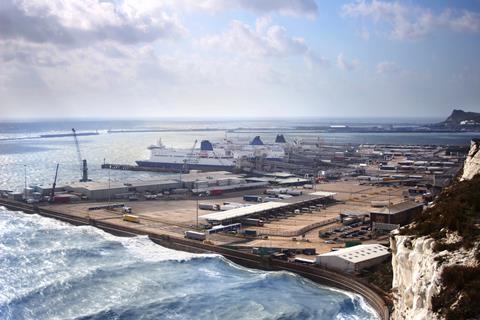New digital border system for passengers travelling to EU could lead to big delays and have major impact on supply chains, according to industry body

Logistics UK has warned of increased food prices and supply shortages due to delays caused by the implementation of the European Entry and Exit System (EES).
From autumn 2024, the EU will introduce EES, a new digital border system to strengthen the security of its external Schengen border.
This will require most citizens of countries outside the EU to create a digital record and register their biometric details, such as providing fingerprints and having their photo taken, when they enter the Schengen area.
New research from the business group, in collaboration with independent modelling experts MDS Transmodal, examines the potential impact of resulting trade delays between Dover and Calais on the UK economy.
Logistics UK reported that Ashford Borough Council has forecast passenger delays of up to 14 hours in a worst case scenario and stressed that any delay in the processing of passengers will have a knock-on impact to freight.
The research estimates that delays of this length would cost £1,100 per truck, a cost which would have to be passed on to the end customer or consumer.
Logistics UK policy director Kevin Green added that even if delays were limited to 90 minutes for the 3.35 million HGVs that passed through the Short Straits in 2023, the cost to the economy would be £400 million per year.
“This is a cost that the logistics industry cannot just absorb,” he said, “not least because our members already operate on incredibly narrow margins and are facing rising operating costs that are putting pressure on their ability to keep trading.
“With the new system being implemented from October, at a time when the UK relies on imported fresh produce in particular, this could cause supply shortages and rising prices for British consumers – if the produce arrives at all.
“EU hauliers may well decide to bypass the potential for delays at the UK border altogether, opting to work with retailers on the European mainland instead, further reducing supply and pushing up prices for UK consumers.”
He concluded: “Adding border checks on imports to the delays caused by EES could have a disastrous impact on the UK’s supply chain, which was previously about supplying goods as and when they are needed, or ‘just in time’.
“In recent years, we have already seen the impact of delays at the Short Straits caused by border closures, customs strikes and even bad weather. Delays could become a regular occurrence and have even more of an impact on the UK’s supply chain if an app-based solution is not implemented swiftly to take some pressure away from the border along this critical GB-EU supply chain route.”



